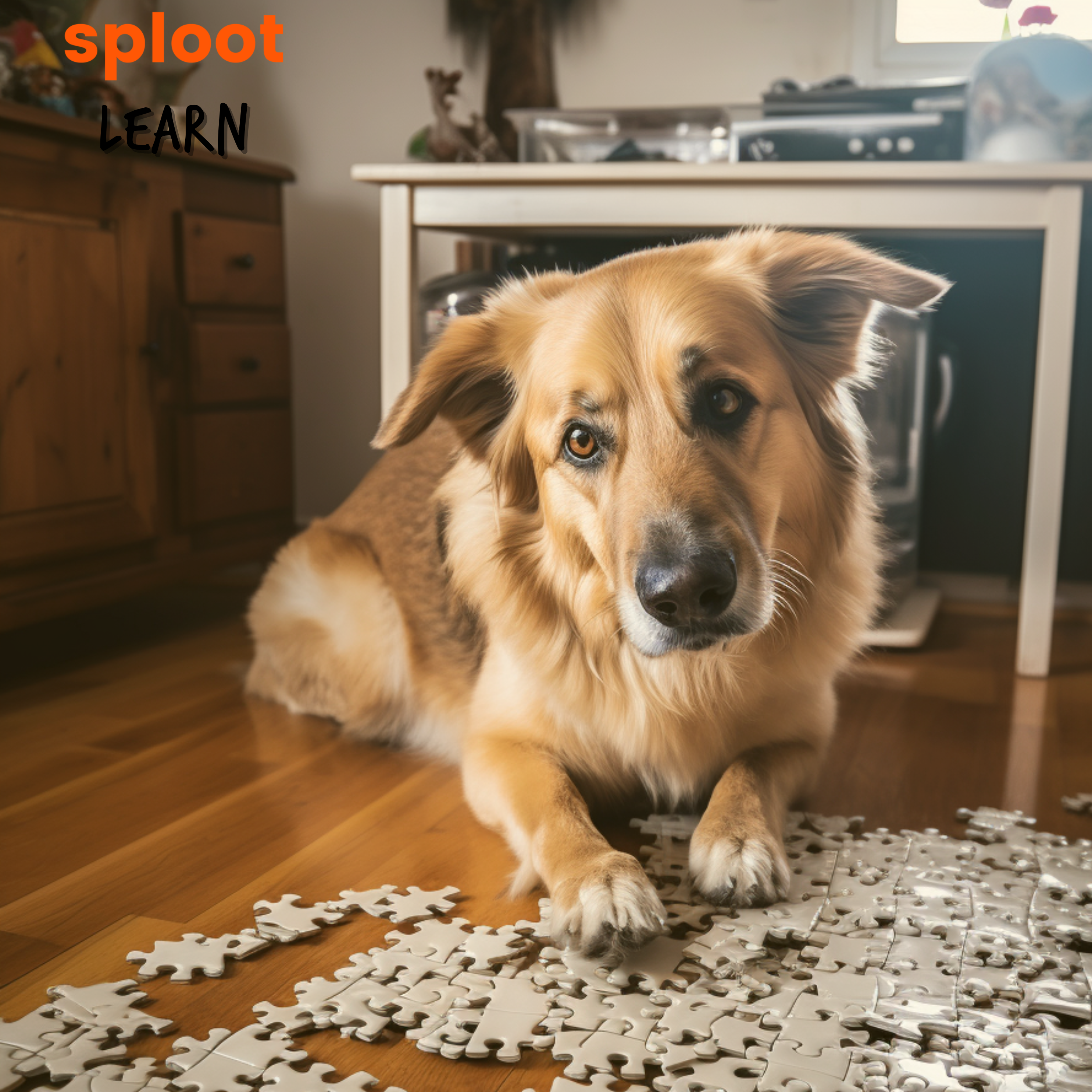Mental Stimulation for Dogs: Enhancing Their Lives and Your Relationship

In the realm of dog parenting, mental stimulation stands as a pillar equally important as physical exercise. Just as humans thrive on engaging activities that challenge the mind, dogs too benefit profoundly from mental enrichment. It's a crucial aspect that can dramatically enhance their lives and deepen the bond between you and your furry companion. This blog delves into the significance of mental stimulation for dogs, offering practical strategies to incorporate it into their daily routine.
The Importance of Mental Stimulation
Prevents Boredom and Destructive Behaviors: A bored dog can quickly turn to destructive behaviors as a form of self-entertainment. Mental stimulation keeps their mind occupied and engaged, reducing the likelihood of such behaviors.
Improves Cognitive Functions: Regular mental exercise can improve cognitive functions in dogs, including memory, problem-solving skills, and adaptability to new situations or commands.
Strengthens Your Bond: Engaging in mentally stimulating activities together can strengthen the bond between you and your dog. It builds trust, mutual respect, and understanding, enhancing your relationship.
Promotes Emotional Well-being: Mental enrichment activities can help alleviate symptoms of anxiety and depression in dogs by providing a sense of purpose and accomplishment.
Strategies for Mental Enrichment
Training Sessions: Regular training sessions are not just about obedience; they're a form of mental exercise. Learning new commands or tricks challenges your dog's mind and keeps them engaged. Use positive reinforcement to make these sessions enjoyable and rewarding.
Puzzle Toys and Games: Puzzle toys that dispense treats when solved can keep your dog occupied for hours, stimulating their problem-solving skills. Similarly, interactive games like hide-and-seek with toys or treats encourage exploration and cognitive engagement.
Novel Experiences: Exposing your dog to new environments, smells, and sights can be incredibly stimulating. Regular walks in different areas, visits to dog-friendly spaces, or playdates with other dogs offer a wealth of sensory experiences that engage and enrich your dog's mind.
DIY Activities: You don't always need fancy toys or gadgets to stimulate your dog's mind. Simple DIY activities, such as hiding treats under cups and shuffling them around or creating an obstacle course in your backyard, can provide ample mental stimulation.
Socialization: Social interactions with other dogs and humans play a vital role in mental health, teaching dogs valuable communication skills and reducing fear and aggression. Ensure these interactions are positive and controlled, especially in the early stages of socialization.
Work-to-Eat Toys: Feeding your dog through work-to-eat toys or food puzzles not only slows down their eating but also turns mealtime into a mentally engaging activity. This can be particularly beneficial for dogs that eat their food too quickly or need additional mental challenges.
Creating a Routine
Incorporating mental stimulation into your dog's daily routine doesn't have to be time-consuming or complicated. Dedicate specific times of the day for interactive play, training, or exploration. Even short 5 to 10-minute sessions can have a significant impact on your dog's mental well-being.
Conclusion
Mental stimulation is a critical component of dog parenting that enhances the lives of our canine friends in profound ways. By incorporating mentally engaging activities into their routine, you not only prevent boredom and behavioral issues but also promote their cognitive, emotional, and social health. More importantly, these activities offer wonderful opportunities to deepen the bond between you and your dog, creating a richer, more fulfilling relationship for both of you. Start exploring these strategies today, and watch your dog thrive in ways you never imagined.

